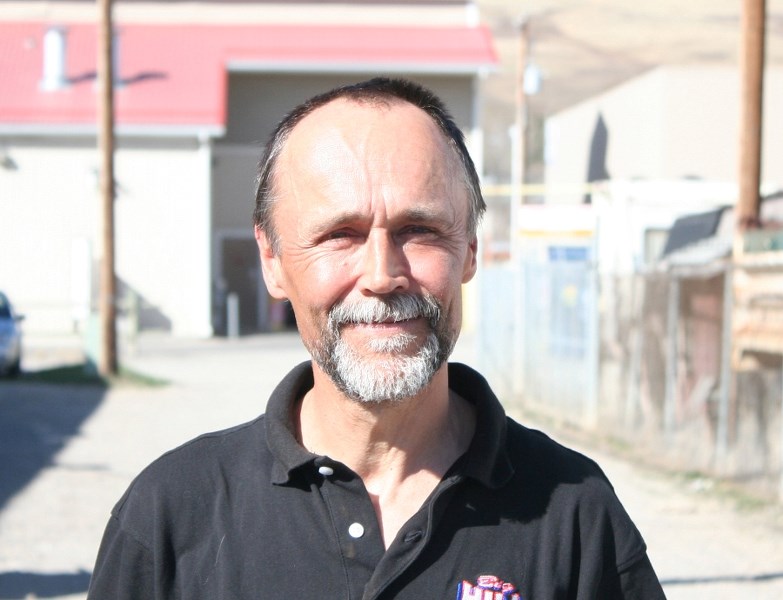Whether it’s for the City of Calgary or the Village of Cremona, nobody said being an elected official was easy.
Since the resignation of Cremona’s mayor, deputy mayor and chief administrative officer (CAO) – and long before for that matter – infighting and uncertainty has come to the forefront.
The village’s lone remaining councillor, Karel Beckman, who, according to a letter he received from Cremona’s appointed official administrator Darryl Joyce, no longer has any responsibility or authority as a member of council, has seen the repercussions that have followed the dissolution of the community’s elected council.
The village has seen its council cease to exist after Leslie Abrams resigned as mayor, Melinda Whittle as deputy mayor and Terry Lofstrom as CAO, forcing Municipal Affairs minister Doug Griffiths to step in and appoint Joyce to oversee Cremona’s administration. Now, Beckman is having his honorarium questioned.
“I had received my March cheque in the mail,” said Beckman, “and not only had the amount been reduced, but there was no letter attached or nothing written on the cheque to explain the short payment.”
As an elected councillor, Beckman was provided approximately $1,800 a year, or $150 a month for his services. In addition, he was paid roughly the same for sitting on three committees (Cremona Day, seniors’ housing and waste management), garnering him around $300 a month.
But following the first of his three-year term, Beckman said how board and committee positions were appointed changed.
“My waste management position had been reassigned to the deputy mayor and the Cremona Day position had been eliminated,” said Beckman, leaving him with only seniors’ housing and less income.
In 2012, Beckman said he lost his last seat, with seniors’ housing being reassigned to the mayor.
Beckman was left with a cemetery board position, the Chamber of Commerce position (which he could not accept due to a conflict of interest) and the Cremona community engagement site, which he could have accepted.
If Beckman would have taken the community engagement appointment, his $150-a-month income from committee positions would have dropped to $30. He also said the position would have opened the opportunity for the mayor to go in camera and allow the deputy mayor to conduct performance reviews.
“Being at council meetings was stressful enough,” said Beckman, “from being prevented from speaking when I had the floor to insults about my Christian faith. I therefore rejected these arbitrary appointments.”
Beckman said his income over the course of his tenure as councillor had been continually eroded by former mayor Abrams and deputy mayor Whittle.
His taxable income for 2012 was $12,288, down from $15,045 the year prior.
“This is a direct result of the mayor’s actions with respect to my board positions,” said Beckman. “Losing another $150 per month would put my cash flow into a subsistence mode requiring ugly decisions which affect quality of life.”
Beckman said that because he owns his home outright, he is able to live on a lower income than many, and this factored into his decision to run for Cremona’s council in 2010.
“I committed myself to this three-year commitment,” he said, “and I do not believe that I should be further financially impaired by the recent decision of the mayor to forsake her three-year commitment.”
Beckman is also concerned that with the appointment of what he called an ‘unelected ruler,’ that there will be no one familiar with the village’s residents and businesses to hold the new administrator accountable.
Beckman feels that Minister Griffiths ignored the Municipal Government Act’s requirement for a byelection and did not see the red flags popping up in Cremona, and as a result, created the issue over his honorarium and put the community in an awkward position.
“It is almost as if a village of 450 residents doesn’t merit showing up on anyone’s radar screen,” said Beckman.
Cameron Traynor, communications director with the minister’s office, said that as a general rule, the province does not want to become involved in local matters decided by locally-elected officials, and that the sovereignty of municipal government is important.
Traynor said the province became involved following the February 2012 petition that requested a dissolution study be done on the village. A viability review was launched in 2012, but has since come to a halt until the next council and mayor is elected this October.
As for holding a byelection, Traynor said the Municipal Government Act (MGA) is straightforward.
“Byelections are not required to be held under the MGA if the vacancy for a councillor occurs in the six months before a general election,” Traynor said in an email. “The replacement of the council with the appointed official administrator will provide continuity for the operation of the village until the general election.”
Until the next election, Beckman’s feelings are clear when it comes to his honorarium.
“I should not have to endure further financial duress,” he said. “I am still a legally elected councillor.”




